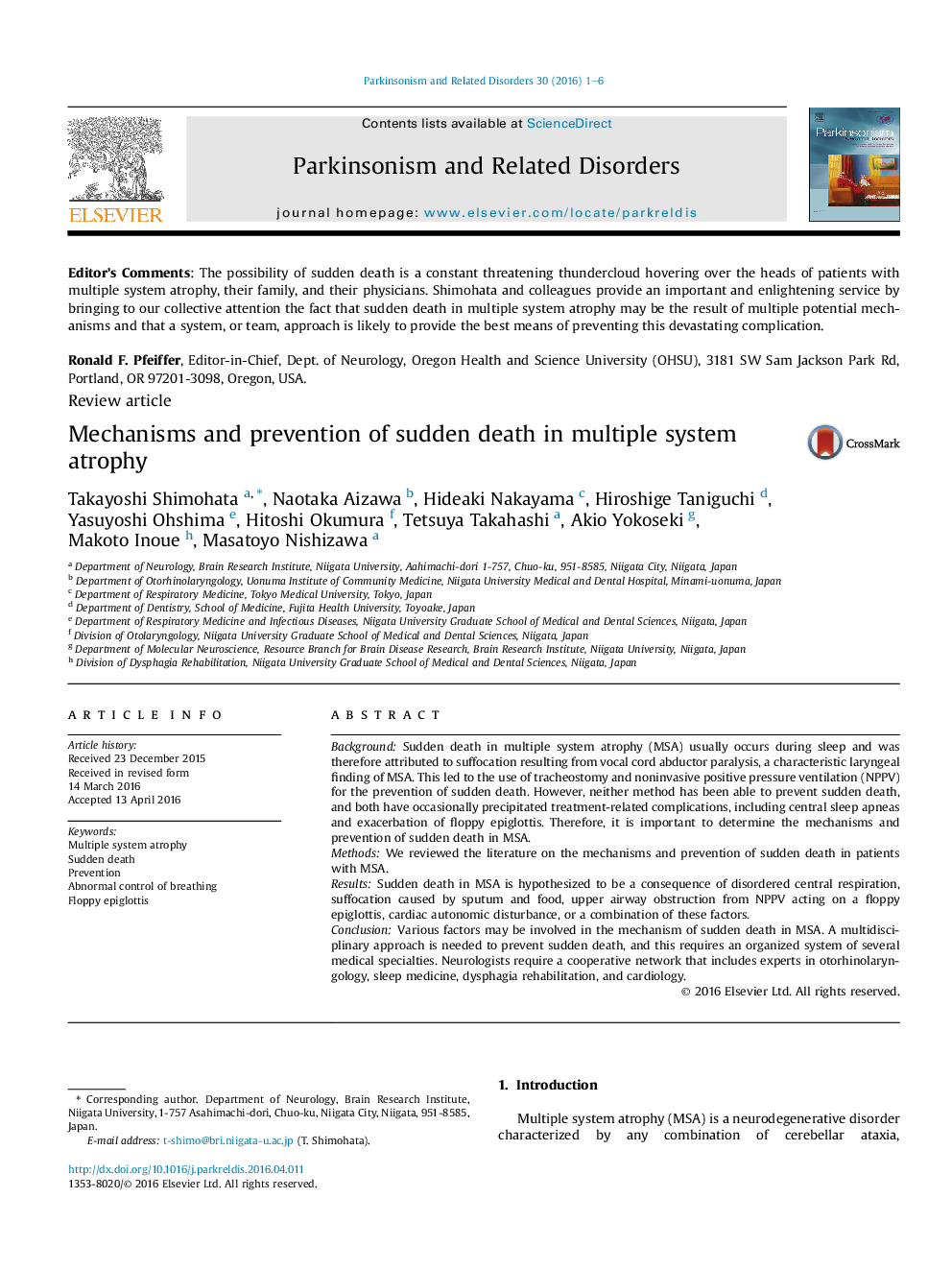| Article ID | Journal | Published Year | Pages | File Type |
|---|---|---|---|---|
| 1920214 | Parkinsonism & Related Disorders | 2016 | 6 Pages |
•The mechanism of sudden death might include abnormal control of breathing, suffocation, and cardiac autonomic dysfunction.•A multidisciplinary approach is needed to prevent the sudden death.•Neurologists require a cooperative network that includes experts in several medical specialities.
BackgroundSudden death in multiple system atrophy (MSA) usually occurs during sleep and was therefore attributed to suffocation resulting from vocal cord abductor paralysis, a characteristic laryngeal finding of MSA. This led to the use of tracheostomy and noninvasive positive pressure ventilation (NPPV) for the prevention of sudden death. However, neither method has been able to prevent sudden death, and both have occasionally precipitated treatment-related complications, including central sleep apneas and exacerbation of floppy epiglottis. Therefore, it is important to determine the mechanisms and prevention of sudden death in MSA.MethodsWe reviewed the literature on the mechanisms and prevention of sudden death in patients with MSA.ResultsSudden death in MSA is hypothesized to be a consequence of disordered central respiration, suffocation caused by sputum and food, upper airway obstruction from NPPV acting on a floppy epiglottis, cardiac autonomic disturbance, or a combination of these factors.ConclusionVarious factors may be involved in the mechanism of sudden death in MSA. A multidisciplinary approach is needed to prevent sudden death, and this requires an organized system of several medical specialties. Neurologists require a cooperative network that includes experts in otorhinolaryngology, sleep medicine, dysphagia rehabilitation, and cardiology.
